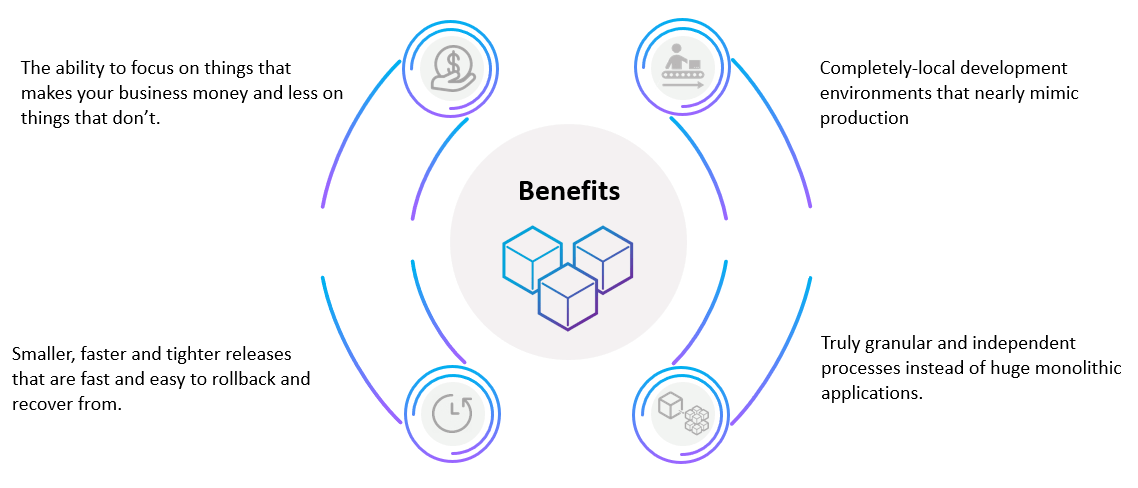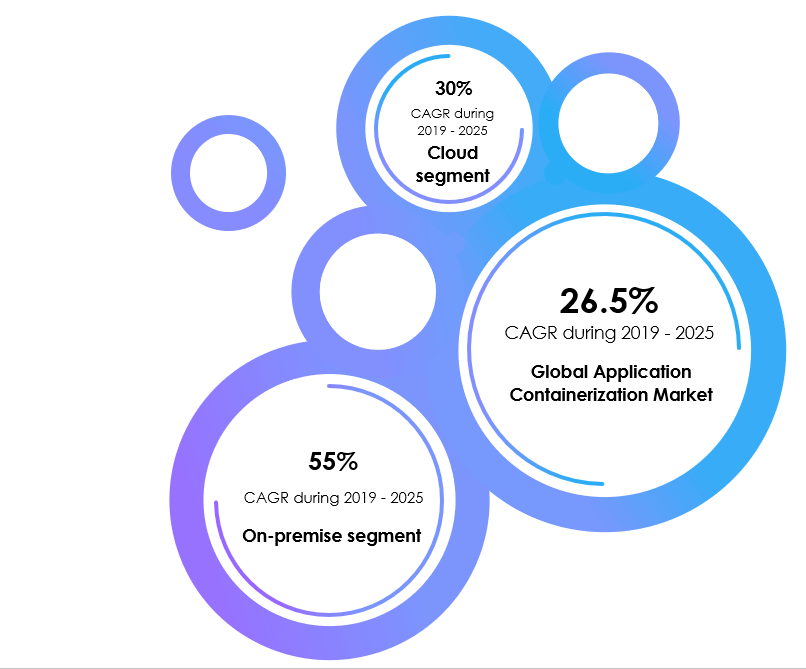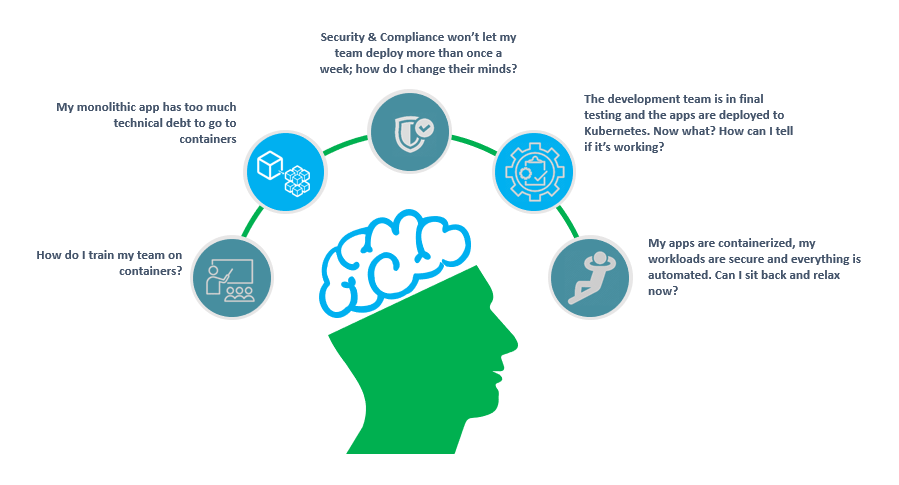
by united admin | Aug 14, 2020 | Private Cloud, Work from Home
Companies have had to arrange for all employees to work remotely full time due to the uncertainties created by COVID 19. While remote working has helped companies maintain productivity levels, the real test isn’t just accommodating flexible work hours and virtual collaboration. The need of the hour is to scale the remote working infrastructure to accommodate all employees. Integrating the entire workforce remotely comes with several challenges. The most obvious one is if the devices available with employees at home can support applications required to work efficiently. Secondly, whether they have access to adequate internet connectivity to ensure synchronization similar to the physical workplace.
In physical workplaces, download speeds are required to be high for employees to access the internet; information is downloaded from company databases. Upload speeds are generally lower since fewer files need to be uploaded than downloaded. When the workplace functions remotely, organizations have to upload files when employees seek to access it, which means that information will arrive much slower than before due to low upload speeds. Internet speeds on personal devices are not consistent, which may disrupt the quality of work. Upload speeds generally being low affects data extraction from the company database and the employees when they upload any material they may have worked on.
Desktops have the most private data that a company can have. Several key advantages of a remote desktop system are centralized management, automatic updates, and security patches, making it easy to manage multiple systems. It is where the UnitedDaaS comes in; it provides a robust governance and monitoring model and eases the management of the devices, their upgrades, and security. Keeping data secure across different locations, devices, and networks is a steep mountain to climb. Migrating applications to the cloud mitigate security challenges. Private clouds offer dedicated, secure data centers that can scale and meet performance requirements. Public clouds provide remote desktop applications, but they operate on a shared infrastructure, which means that they are inherently exposed to attacks by malicious parties. UnitedDaaS is fully compliant with SSAE18, SOC 1 and SOC 2 security standards, including a secure network optimized Virtual Private Network (VPN) connection for remote access.
The high-performance work from home virtual server by UnitedLayer includes a remote Desktop as a Service solution deployed in your private, dedicated, and highly secure Virtual Data Center (vDC). The existence of enterprise applications and employee desktops on the same private cloud allows for a robust, high performing system as it eliminates the lag from the data being relayed to employees from applications. These servers run on 10Gg networking and offer high-performance computing with 99.999% high-availability, all-flash storage. UnitedLayer can spin up your Virtual Data Center (vDC) solution and set up your applications and optimize them within minutes. The scalability of UnitedDaaS helps your IT grow as fast as your business and provides employees with a seamless desktop experience anywhere, anytime.
Visit the United Private Cloud website today to know more about why UnitedDaaS is the right choice for your organizational needs.

by united admin | Aug 14, 2020 | Managed Services, Private Cloud
According to a recent Right Scale survey – 93 percent of businesses use cloud technology in some form or other. Cloud computing has advantages for many types of organizations, but migrating your business to the cloud is easier said than done to ultimately profit from a step into the cloud. A range of critical decisions needs to be taken by organizations. Next, you have to determine what type of cloud system best suits the needs of your business. Although some well-known companies are hyperscale public cloud providers, a private cloud is a more suitable option for many organizations.
Gartner defines a ‘Private’ cloud as a form of cloud computing used by only one organization or ensures that an organization is completely isolated from others. A private cloud provides the benefits of flexibility, cost savings, security, and control. These benefits are especially valuable to businesses with predictable workloads or requirements for customization and companies in regulated industries.
Once an organization’s cloud needs and priorities are determined, it can determine whether the private cloud is the right kind of IT environment. The private cloud would be the only viable choice for specific organizations to ensure regulatory compliance, while the viability could be different for other organizations. An enterprise will assess its flexibility, compliance, security, and cost criteria to decide whether it will benefit from deploying a private cloud. It should also consider the applications it uses, what environment and its capabilities are suitable for them, and the kinds of services it offers. A professional service provider that provides hosting private cloud solutions can assist with these evaluations and provide organizational-specific recommendations.
United Private Cloud is the private cloud offered by UnitedLayer to suit your cloud needs to the fullest while you can focus solely on your business. We provide you with a fully managed infrastructure and database service for business of any size and on any platform, thus allowing for OS and Hypervisor patching. We manage containers and mesh services using k8s, OpenShift, GKE, and AKS with a fully managed mesh services setup using Istio, Anthos, AppMesh. Security is one of the major concerns while shifting to clouds. Our United Private Cloud proactively identifies, responds, and mitigates any security threats against your IT infrastructure. We deliver fully managed security solutions that protect your infrastructure and data through industry-leading Firewalls, DDoS, VPN, SSL/TLS, VLAN segmentation, blocked IP, and ports. We provide a fully managed audit-ready risk analysis and compliance management service to ensure compliance with industry governance and compliance standards (HIPAA, GDPR, PCI, NIST, etc.).
United Private Cloud allows you to assess and discover your data center and cloud infra/application and migrate data/applications across data centers and clouds seamlessly. To serve critical business needs, we enable you to link your G3 Private cloud environment to your public cloud choice using UnitedConnect. It also helps you reduce your network deployment and setup costs, amplifies bandwidth throughput, and provides a more consistent network experience. We offer a fully managed service that helps you design, implement, and security testing of your software-defined data centers and private clouds. Lastly, we apply a CI/CD pipeline and perform DevOps automation using Terraform, Chef, Ansible, and Puppet for infrastructure and application deployment.
United Private Cloud comes with all the benefits of cloud computing and an enterprise-grade private cloud with greater controls and security. With N+M Clusters, we guarantee 99.999 percent availability to reduce downtime. Our United Private Cloud private cloud, powered by VMware technologies, has a guaranteed 30 % lower cost than leading public clouds. United Private Cloud helps organizations to achieve performance advantages, minimize costs, adapt rapidly to unpredictable demand, and solve data sovereignty and enforcement requirements with ease.
To get a better insight into what else United Private Cloud has to offer, sign up for a free demo today.

by united admin | Aug 14, 2020 | Desktop As A Service, Private Cloud
The Covid-19 pandemic has kept most of the world’s workforce from corporate offices and into their homes. Companies are addressing the uncertainties created by this pandemic by adapting to a new form and flow of collaboration. Time calls it “the world’s largest work-from-home experiment.” Trying to scale infrastructure to manage a larger workforce at short notice with WFH capabilities is an experiment indeed. The shift or need for remote work is not a recent phenomenon; teleworking has grown 173% since 2005. In 2014, Harvard Business Review conducted a research study where they assessed the impact of a Work From Home structure for Ctrip, a travel website. It was clear even then that work from home was improving productivity. The study showed that employee attrition decreased significantly, and the cost per employee was reduced. This situation is a wake-up call for organizations to adapt to the changes in the way employees collaborate for good.
There is no doubt that work from home is a social equalizer. It has created opportunities for disadvantaged communities, minority groups, and professionals from different countries to work in their fields of interest. An IDC study found that the percentage of full-time remote information workers in the US increased from 8% to 69%. While the implementation of work from home is forced, it is the pillar on which a ravaged economy is surviving. Work from home is a necessity and not an option, or a temporary provision for high-level managers. It allows professionals to balance their commitments remotely, and it is a trend that is here to stay. Virtual desktops are the future and can create value, even when the Covid-19 situation gets better. A survey conducted by EY, 72% of the 100 Human resource heads of companies across different sectors, recognizes the impact of COVID- 19 on their companies for another six months.
The technology sector offerings in terms of cloud computing and remote desktops have helped companies sustain in these troubled times. Desktop as a Service has emerged as the savior with companies going the extra mile to help organizations use their services, with maximum support, and at reduced costs. At United Private Cloud, the remote working experience has been very positive. Since the advent of the COVID pandemic, all employees have worked remotely. Despite having offices in different locations and employees across the world, the transition was eased by employing the Desktop as a Service solution. Communication across various departments is just as smooth, if not better than before. Team meetings and collaborations have become more flexible and enhanced collaboration.
In this digital world, this is the time to capitalize on what we do best, and that is to work in tandem with new technology. Companies are exploring ways to digitize some or all work through advances in robotics, IoT, cloud, and other technologies. While automation boosts efficiency, human efforts are focused on innovation, creativity, and problem-solving. The time is here to capitalize on the need for remote desktop platforms to facilitate productive work from home options. Desktop as a Service solution will foster an inclusive, empathetic workplace that exceeds productivity benchmarks of the traditional workplace.
Visit the United Private Cloud website today to know more about why UnitedDaaS is the right choice for your organizational needs.

by united admin | Aug 14, 2020 | Private Cloud
Companies are continually looking for ways to optimize data storage, analysis, and utilization. Organizational data need to be protected at all costs; data-dependent applications are increasingly vulnerable to Cyberattacks and impacts of outages. With data outages and attacks on leading public clouds rising, the focus has shifted to the impact of systems being unable to cater to organizations’ security concerns. Enhanced security and customized management make it all the more lucrative to go private. United Private Cloud comes with all the benefits of cloud computing and with greater control and security of an enterprise-grade private cloud. Our G3 private cloud can be tailored to suit your organization’s requirements fulfilled by the three variants of our G3 private cloud.
G3 private cloud powered by VMware provides you a fully managed, single-tenant, dedicated VMware private cloud in your choice of global data centers, including your own and allows you to address data sovereignty requirements. While locating cloud resources closer to your office — which can drastically improve performance and customer satisfaction. This version comes with the benefits of enhanced performance, availability, scalability, and security of your cloud computing processes. Get the controls and security of an enterprise-grade private cloud powered by VMware technologies to achieve a guaranteed 30% lower cost than the leading public clouds.
G3 private cloud delivers OpenStack Private Cloud as a Service, architected like a public cloud, and designed for scale and service availability to any data center in the world. It includes a 99.999% API Uptime SLA and can save customers revenue by up to 30%. Increase agility at lower costs while avoiding vendor lock-in through G3 private cloud powered by OpenStack. Get a world-class private cloud for your business with hosted, on-premises, and hybrid flexible deployment models. Get a self-service solution with features such as customization of the virtual machines, processing servers, networks, middleware, services, data storage, and the ability to run software applications and operating systems flawlessly.
G3 private cloud powered by Hyper-V is a simple and easy-to-deploy private cloud solution that can be flexibly expanded when required. It integrates and manages your environments with tools and services designed for hybrid cloud with a high level of security through Hosted Guardian Service and single tenancy management as compared to public cloud environments.G3 private cloud with Hyper-V provides consistent application development, holistic security, robust intelligent edge portfolio, and ecosystem at very competitive pricing. Experience the public cloud flexibility in the on-premises environment near to you with an extra layer of encryption and administration and fully managed support 24×7 with a 15-minute response time SLA included.
United Private Cloud enables organizations to gain performance advantages, lower costs, rapidly respond to the unpredictable demand, and quickly solve data sovereignty and compliance requirements.
Visit United Private Cloud’s website today for the right solution for your Private Cloud needs.

by united admin | May 14, 2020 | Private Cloud
If you had asked the question about the importance and role of containers a few years ago, the response would not have been the same as it would be today. Containers have replaced the conventional usage of hardware and virtual machines. But the concept of containers is not new and has been around since the 70s. It first was employed by Unix V7 in 1979 followed by FreeBSD Jails, Linux VServer, Process containers, and many more. Instead of the features offered, the aforementioned containers, they came with a drawback which was their portability.
A container is a standard unit of software that conglomerates up code and all its dependencies, so the application runs apace and assuredly from one computing environment to another. To simplify it further, a container is an isolated environment for the execution of an application. Companies nowadays prefer microservices over the monolithic writing system. The whole process of maintaining a collection of microservices is going to be more challenging than to preserve a monolithic application but many platforms with container orchestration settings like Docker and Kubernetes have emerged. Hence, the deployment of containers has become way more efficient and streamlined than the conventional methods, surmounting the challenges faced before.
With the advent of new software and further evolution of containers, it led to increased IT flexibility and abstractive capabilities eventually resulting in ease of deployment, cost of maintenance, commanding pattern, etc. The persistent usage of containers and scalable microservices has gradually changed the face of software, architecture, and developmental operations.
Since 2013 to date, Docker has been facilitating the process and offers an entire ecosystem for container management. It gave rise to various management platforms like Kubernetes, Docker Platform, Red Hat OpenShift Container Platform, Rancher, and the list goes on. All these platforms offer the best orchestration and control over management intending to make containers more established and recognized.
Containers enable hybrid and multicloud solutions with the potential to deliver superior flexibility with security preferences. The size of virtual machines differs from containers which are much smaller. Therefore, the upcoming future is expected to have more deployments of these on bare-metal servers. The process of containerization secures the applications and monitors it automatically while challenges like platform dependence, hardware maintenance, and networking are being eradicated.
Over the past couple of years, it has become vivid how containers are on the threshold of becoming the foundation constituent to change the outlook on how IT enterprise is managed. Visit our website and sign up for a free demo to get insights into what our company has to offer.

by united admin | May 14, 2020 | Private Cloud
Here we will discuss questions that would have crossed your mind every now and then like, ‘what are containers?’, ‘What is the enterprise value to transitioning to containers?’, ‘Why should enterprises shift towards containers now?’, etc.
A container is a standard unit of software that packages up the application code and all its dependencies so that the applications can run quickly and reliably from one computing environment to another. In the initial days of remote computing, the idea of using your Windows machine to run other machines was compelling, and VMware made this dream come true.
When virtual machines (VM) became much faster and easier to create, it did not take much longer for enterprises to realize that this technology can reduce their IT costs drastically. One of the key advantages of moving towards VMs was a reduction in the data center footprint. You can fit more applications on fewer physical machines by running multiple VMs on the same physical box.
Using containers is another way of packing applications in a much lighter weight and with a much faster delivery model. This is a much more efficient way of running multiple application processes on a single box, regardless of whether that box is a VM or a physical machine.
Due to these revolutionary benefits, containers play a major role in the context of fulfilling DevOps, microservices, and cloud strategy in any small medium and large enterprise.
Let us explore how application containerization can benefit a modern enterprise.
Containers help enterprises to modernize their legacy applications and create new cloud-native applications that are both scalable and agile. Container engines such as Docker and orchestration frameworks such as Kubernetes, provide a standardized way to package applications (including code, runtime, and libraries) to run them in a consistent manner across the entire software development life cycle.
Benefits of application containerization
Enterprises can enhance their DevOps practice and innovation velocity by moving from heavy, monolithic applications to lightweight, agile containerized application delivery. The development of life cycles is shortened and images running in containers operate faster with increased utilization of cloud resources.
Hence, a container-based infrastructure can greatly increase development velocity while decreasing operating costs.
Why enterprises should focus on creating their container strategy now:
For enterprises, 2020 is the right time to be concerned about their container strategy, since several industry-leading analyst houses have predicted huge growth in the adoption of application containerization by 2022.
It is predicted* that >75% of global organizations will be running containerized applications in production by 2022 as compared to 30% in 2019.
The global application container market size** was valued at $1.5 billion in 2018 and is expected to register a CAGR of 26.5% during 2019 – 2025.
The on-prem segment is projected to account for a share of >55.0% by 2025. The cloud segment, on the other hand, is anticipated to register a CAGR of ~30.0% during 2019 – 2025.
Questions to focus on while preparing your container strategy
When enterprises understand the business benefits of adopting application containerizing technology, they should encounter a few key questions before their journey:
How to train your existing staff for containers: One can hire a consultant or professional trainer and establish a formal training plan in place with a fixed schedule to help the team focus on training. The best approach could be to include a part of your team in training and allow the rest of the team to handle your existing legacy infrastructure.
How to smoothly transition your monolithic applications on containers: One should piece out their legacy application one by one and should deploy them on containers when they are ready. Microservices (container-based applications) do not have to be deployed all together in one massive deployment.
How to handle Security & Compliance of your applications: One should engage with their security team early to form a strategy that makes them comfortable with a more agile approach for deployments. To reduce your vulnerability, you should perform static code analysis with tools like Veracode, image scans with tools like Clair, and integrate CI/CD security with tools like Twistlock or Stackrox.
How to test your applications deployed on Kubernetes: Since the technology is new in the industry, it experiences greater than the average number of zero-day exploits and a growing list of vulnerabilities. One should monitor and secure the runtime through monitoring tools like Prometheus and Nagios.
After your application deployment, can you sit back and relax: Kubernetes is a developing ecosystem, so your team will need R&D time built into their workweek to stay up to date and experiment with new tools as they become available.
Must have Kubernetes service components, in your journey for application containerization:
The journey to containers at enterprise scale is best made by moving as much of the SDLC process back to the developer as possible, and by focusing on transforming a single application and gaining institutional knowledge slowly.
Since container technology is developing day by day, one should always look for a Kubernetes service that ensures fully automated operations with 99.999% SLA on any environment (data centers, public clouds, or at the edge). United Private Cloud provides a highly customizable and available (99.999% SLA) Kubernetes solution for enterprises in hybrid or multicloud infrastructures globally. What makes this solution more appropriate for the enterprises is its highly available architecture with performance-optimized compute, all-flash storage, security, multicloud connectivity, support, and distributed resource scheduling on a 10gig networking platform.
After availability, the second most crucial component for any Kubernetes solution is its security and compliance integrity, which generates a need for a service that can provide you proactive monitoring of your microservices across your hybrid cloud environment. United Private Cloud has an industry-leading service offering UnityOneCloud, a single pane of glass that provides multicloud observability, monitoring, management, auditing, support, and automation.
Why not focus on your core business and eliminate the complexity of managing and operating Kubernetes by selecting United Private Cloud as your managed Kubernetes service provider!
Give us a call or email us for a free demo and to understand how you can save guaranteed 30% cost benefits and eliminate your complexity of managing Kubernetes.










